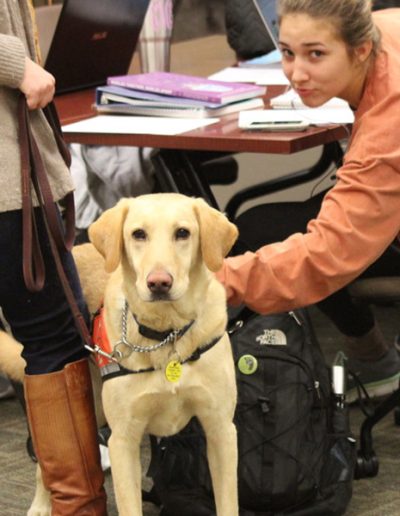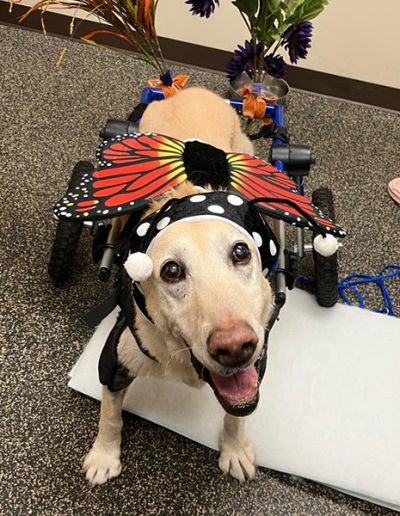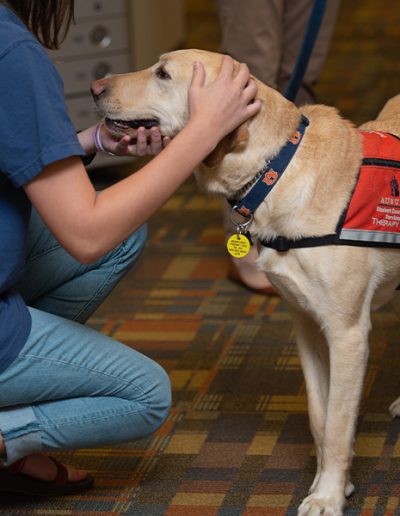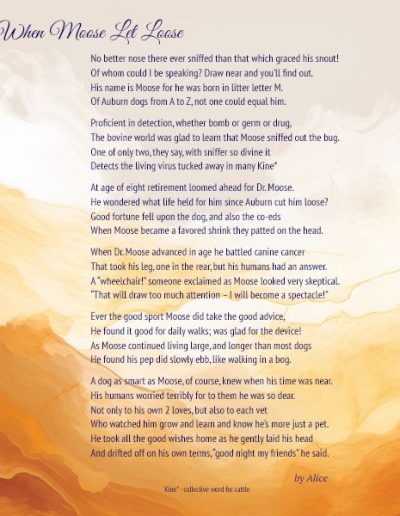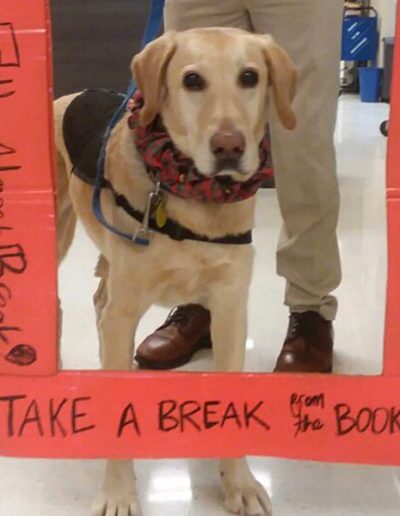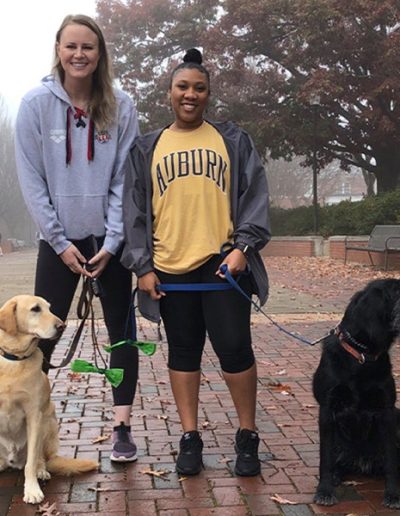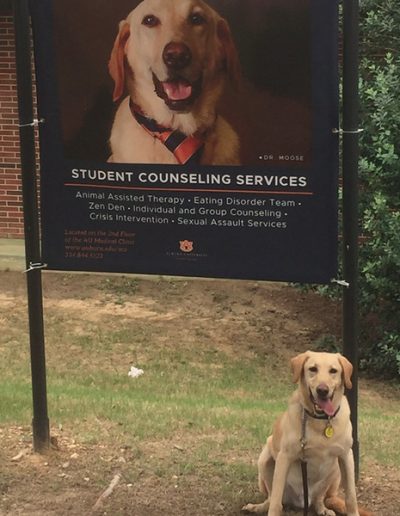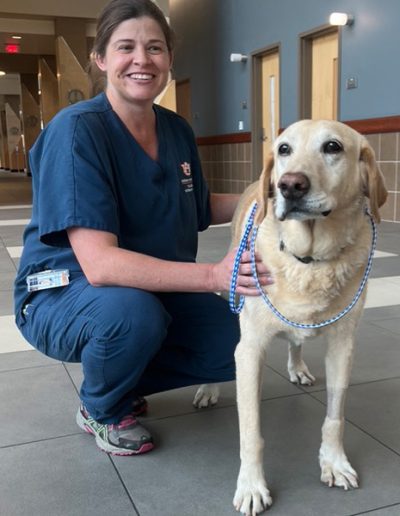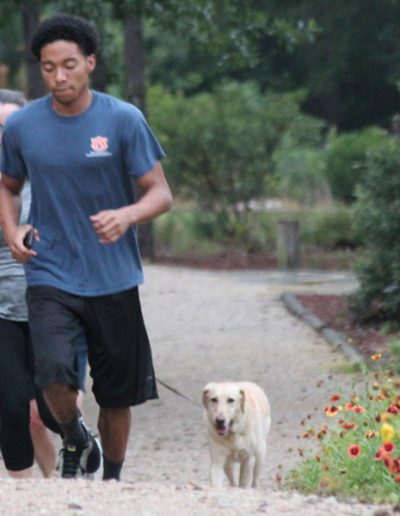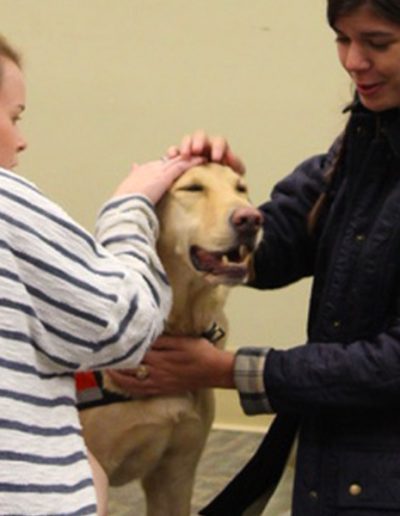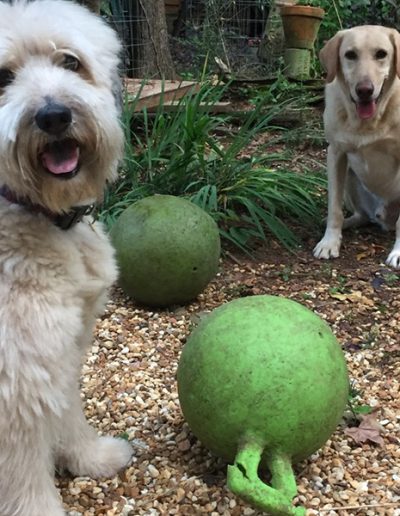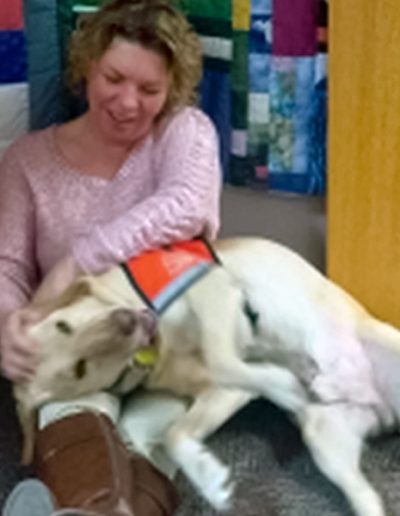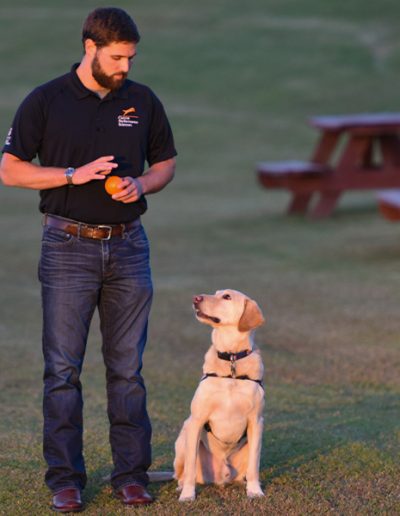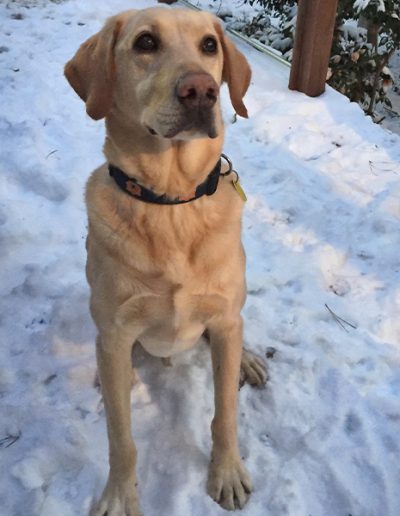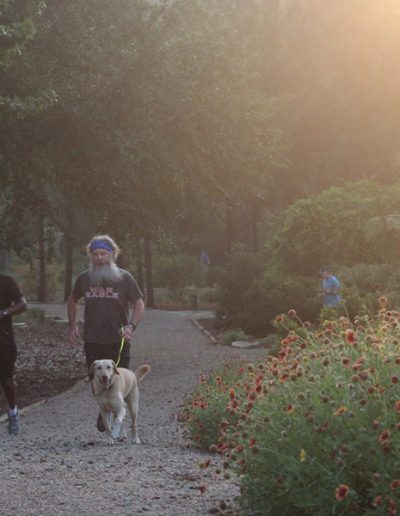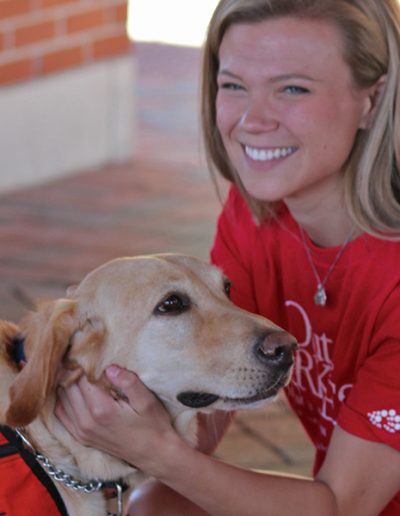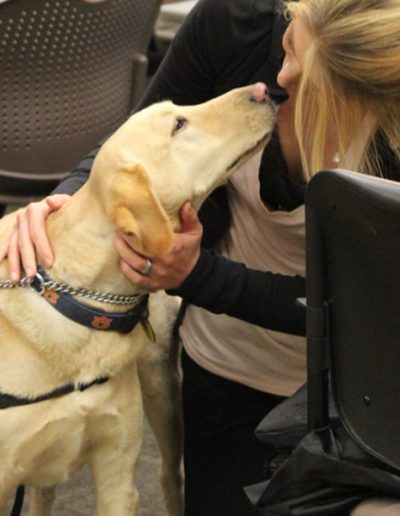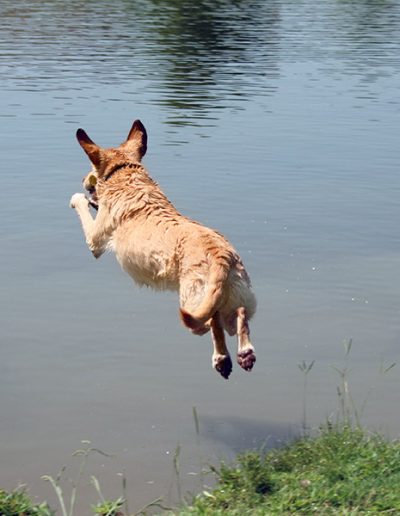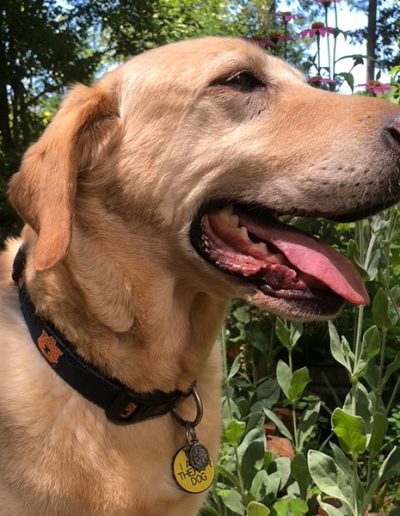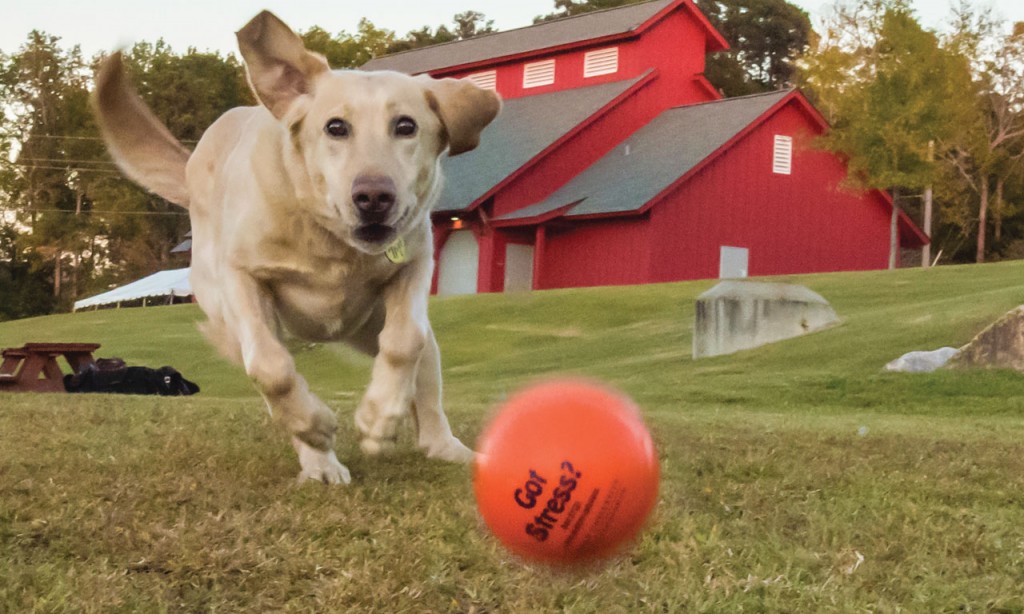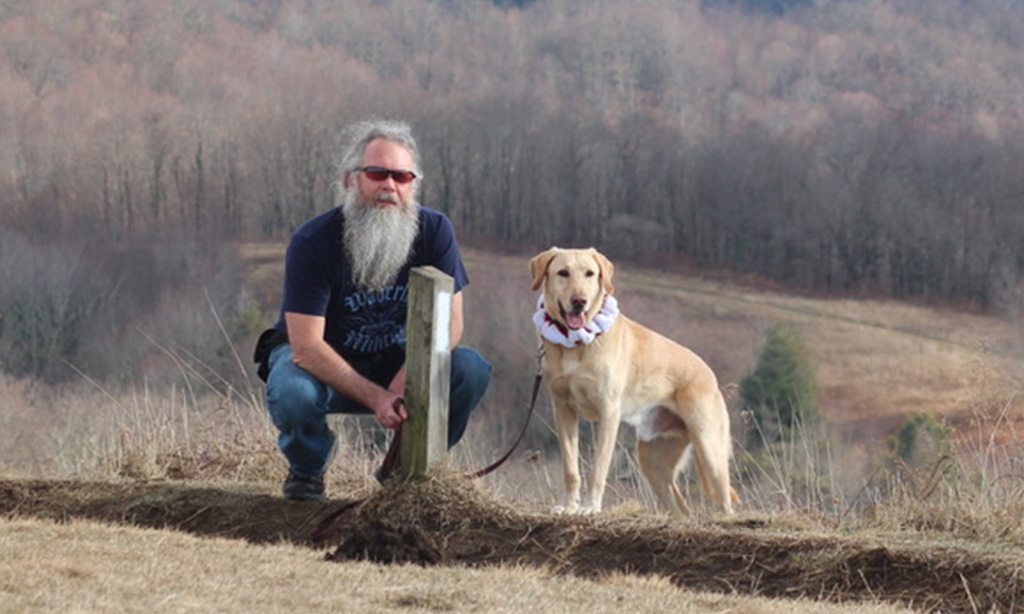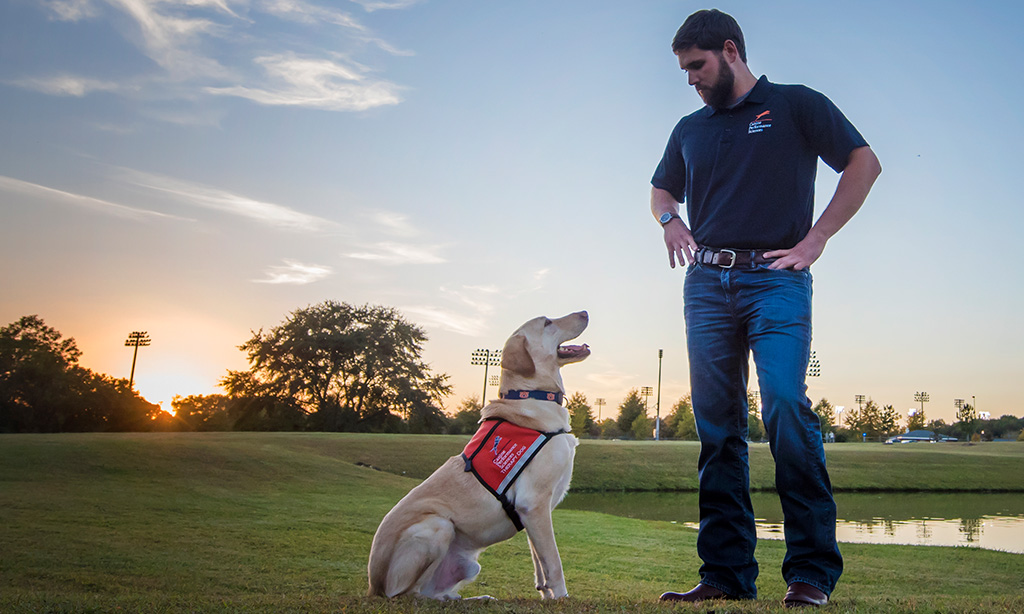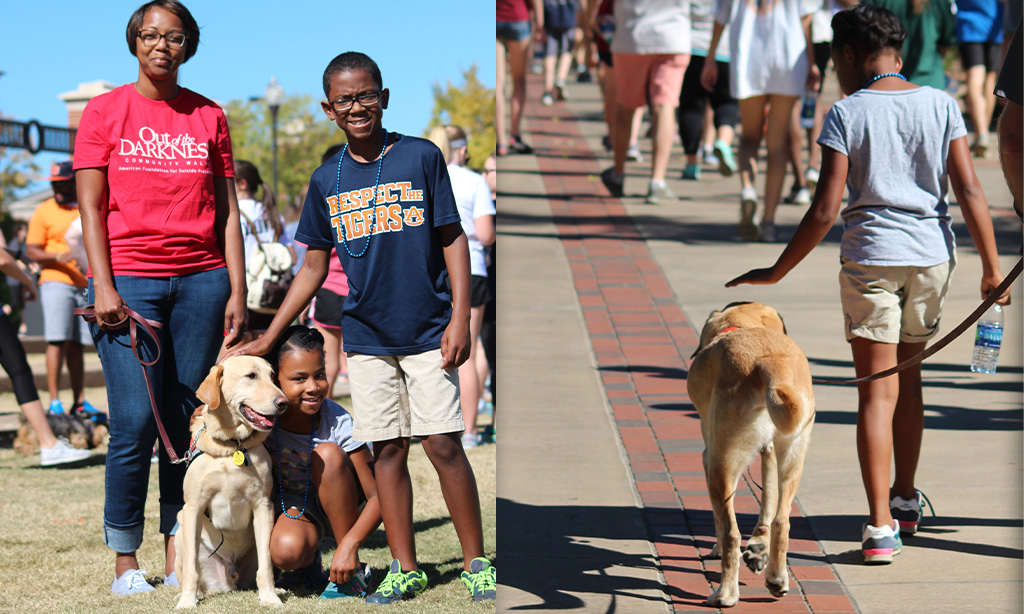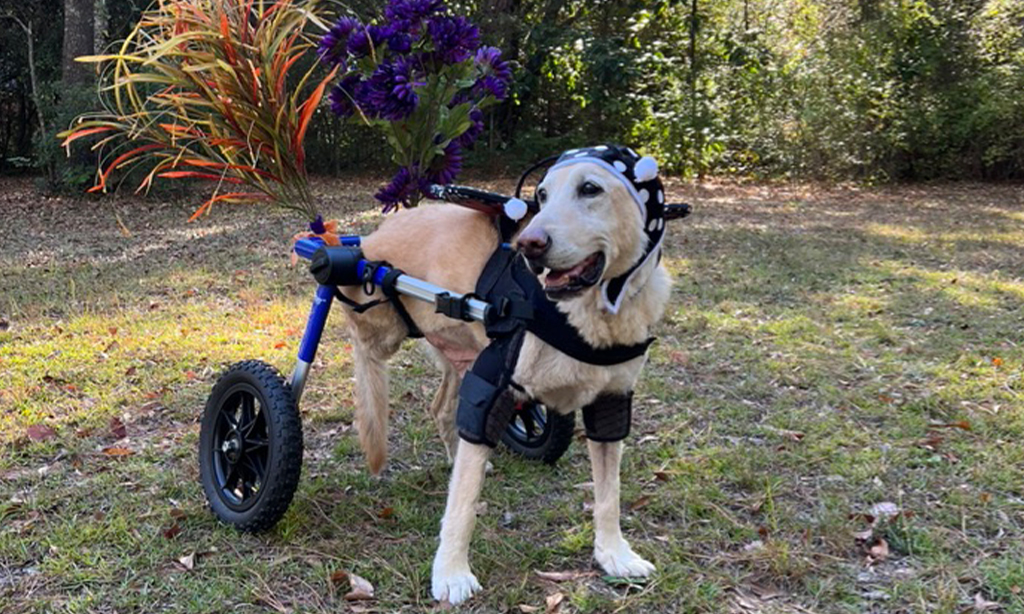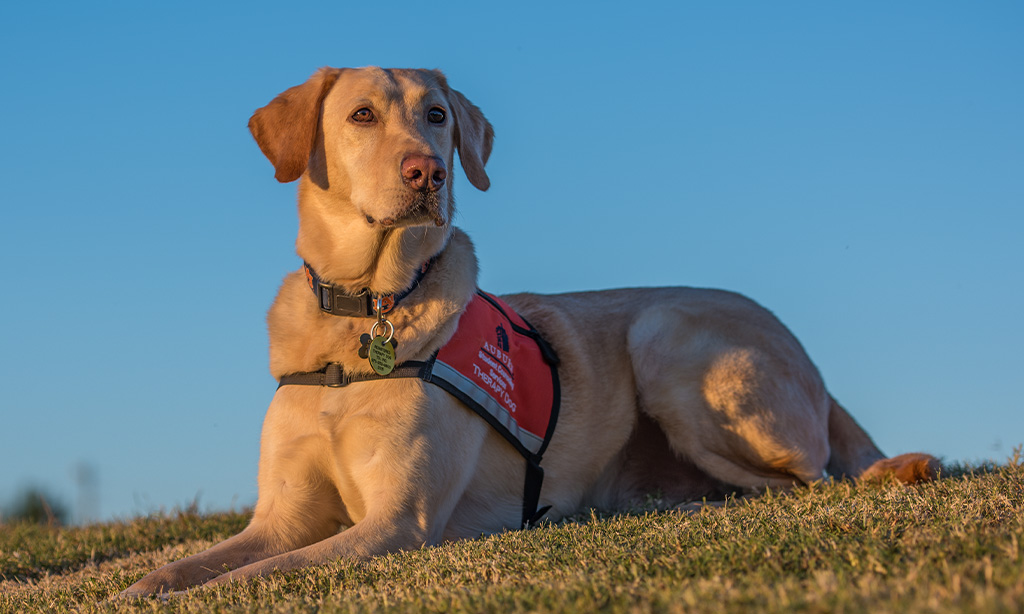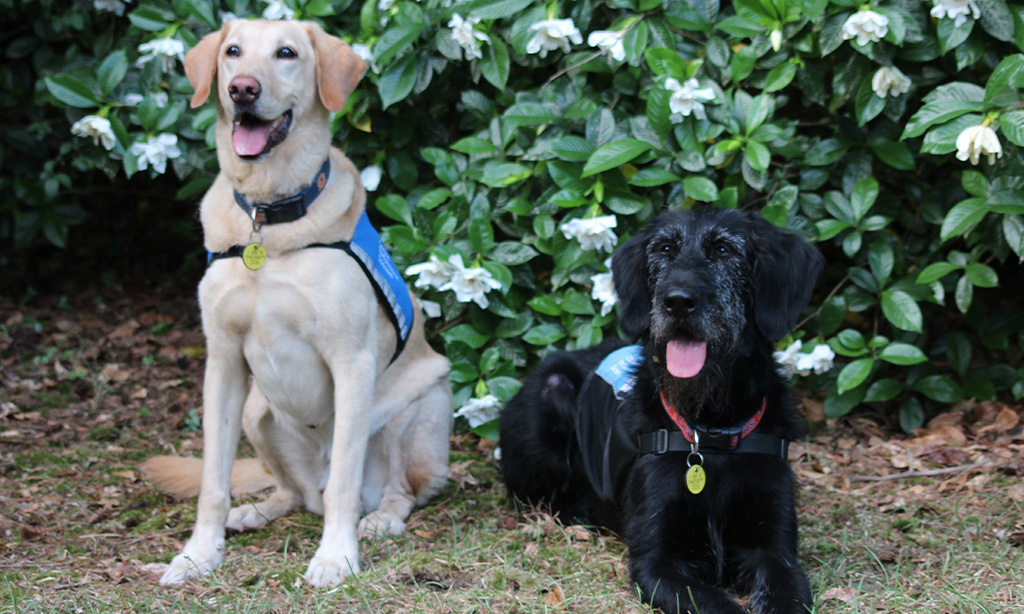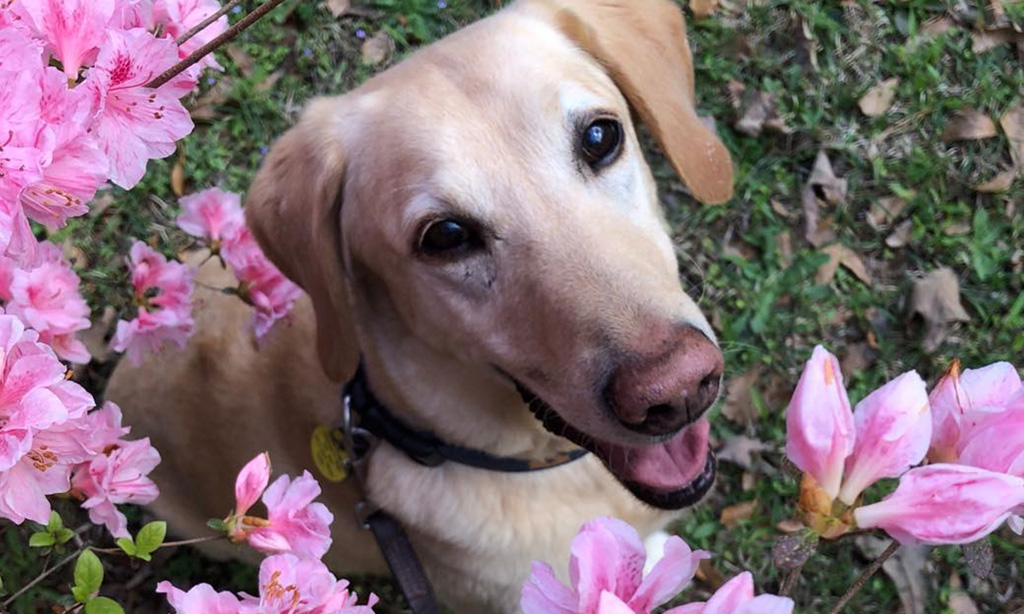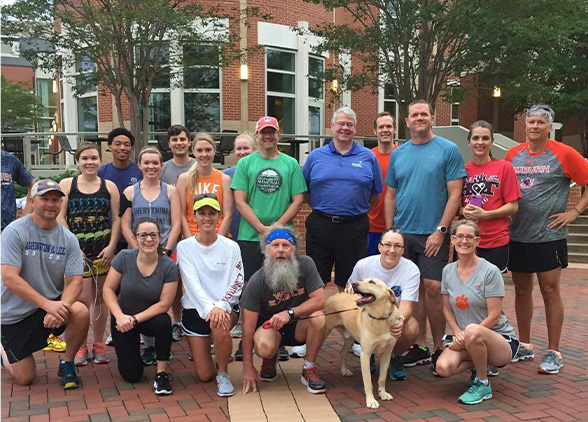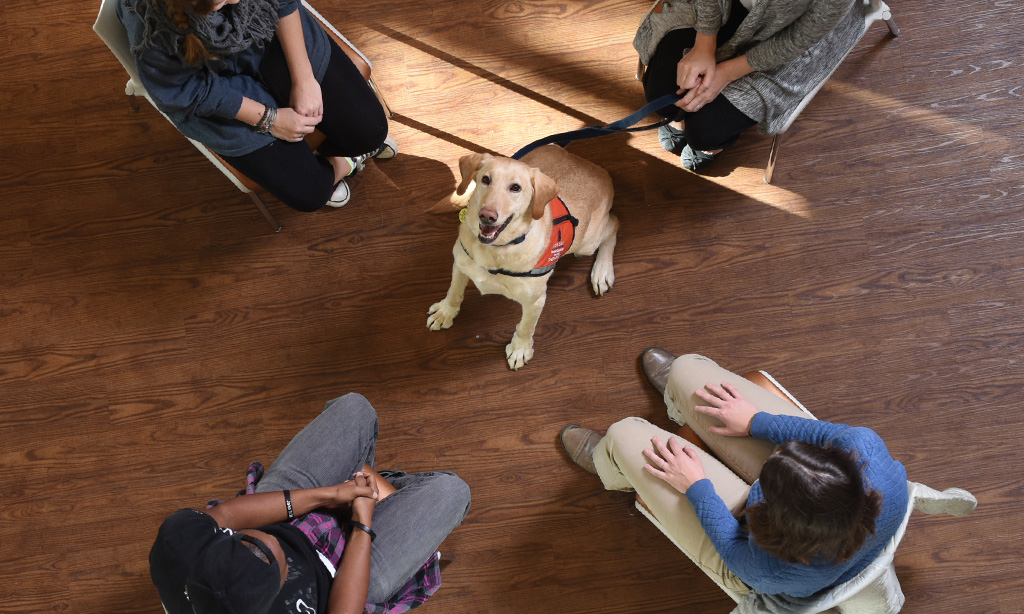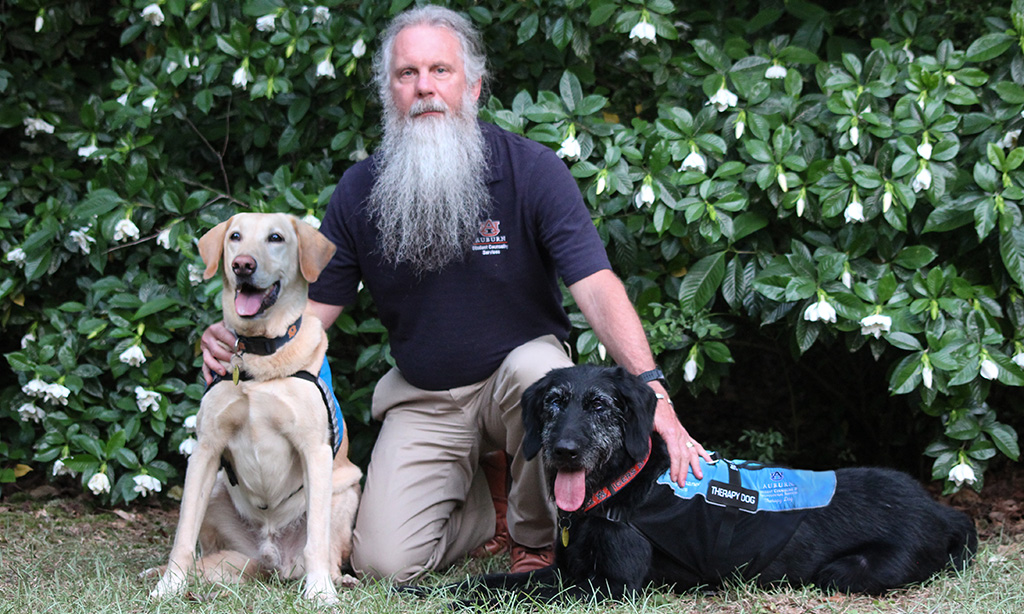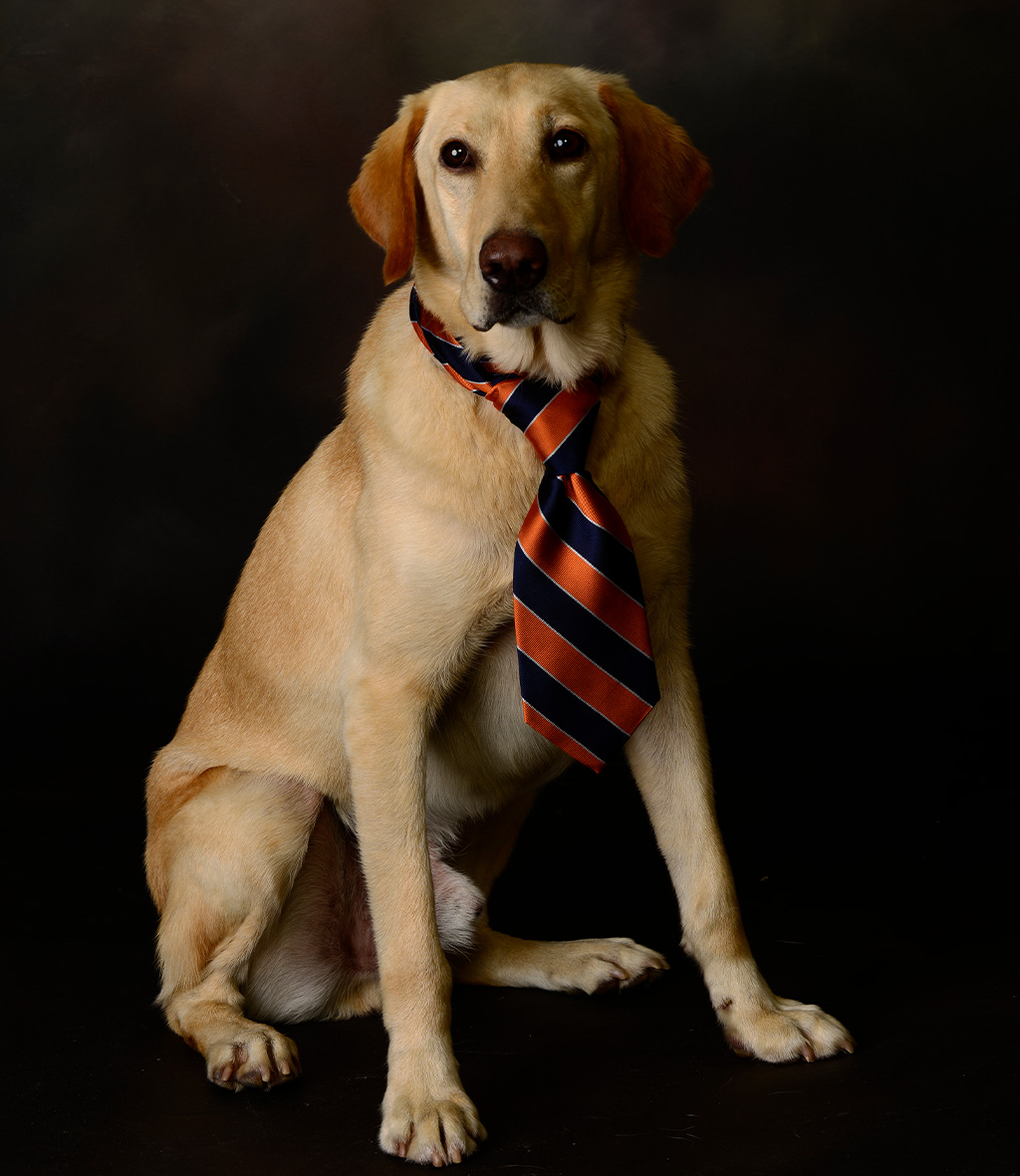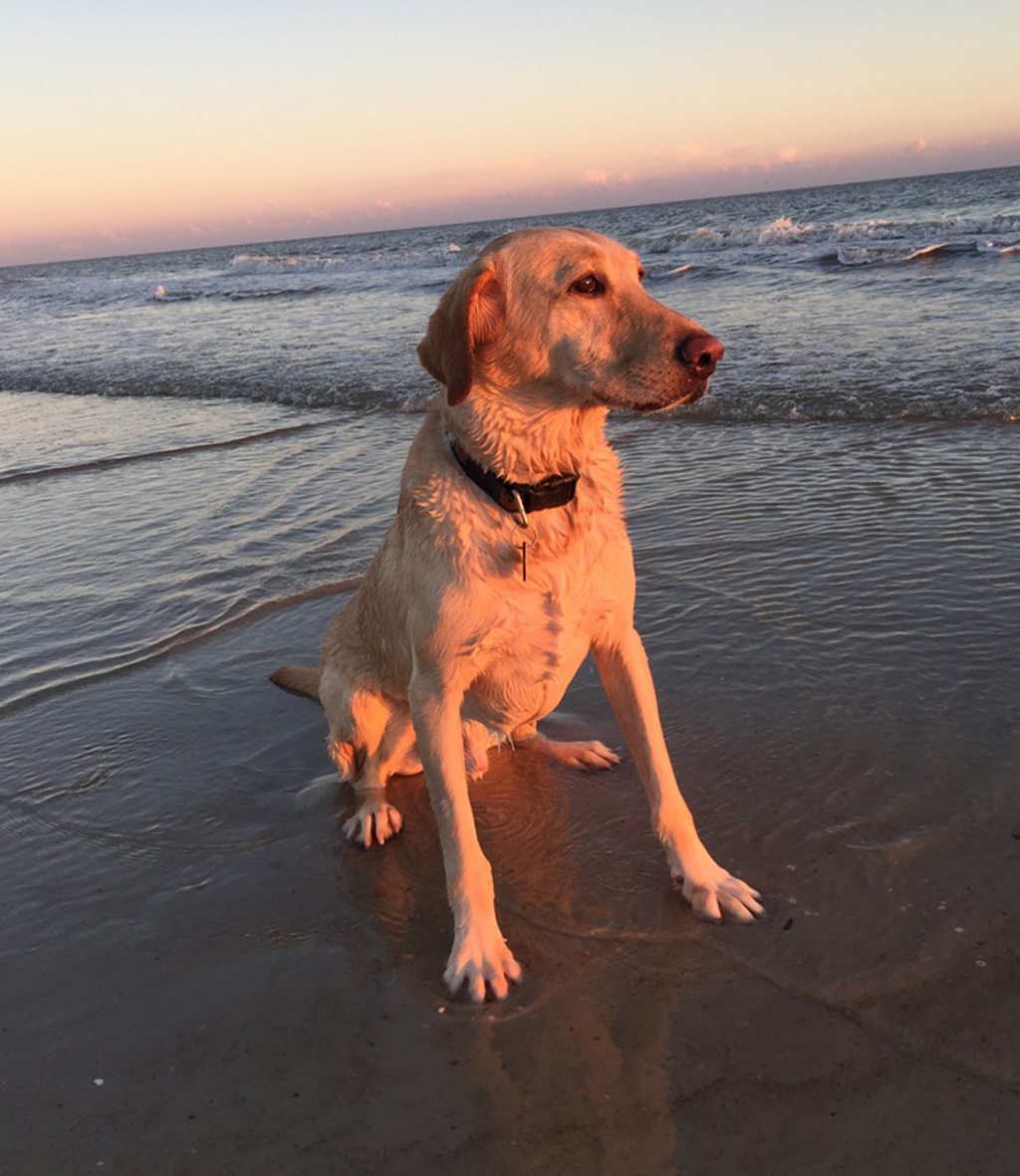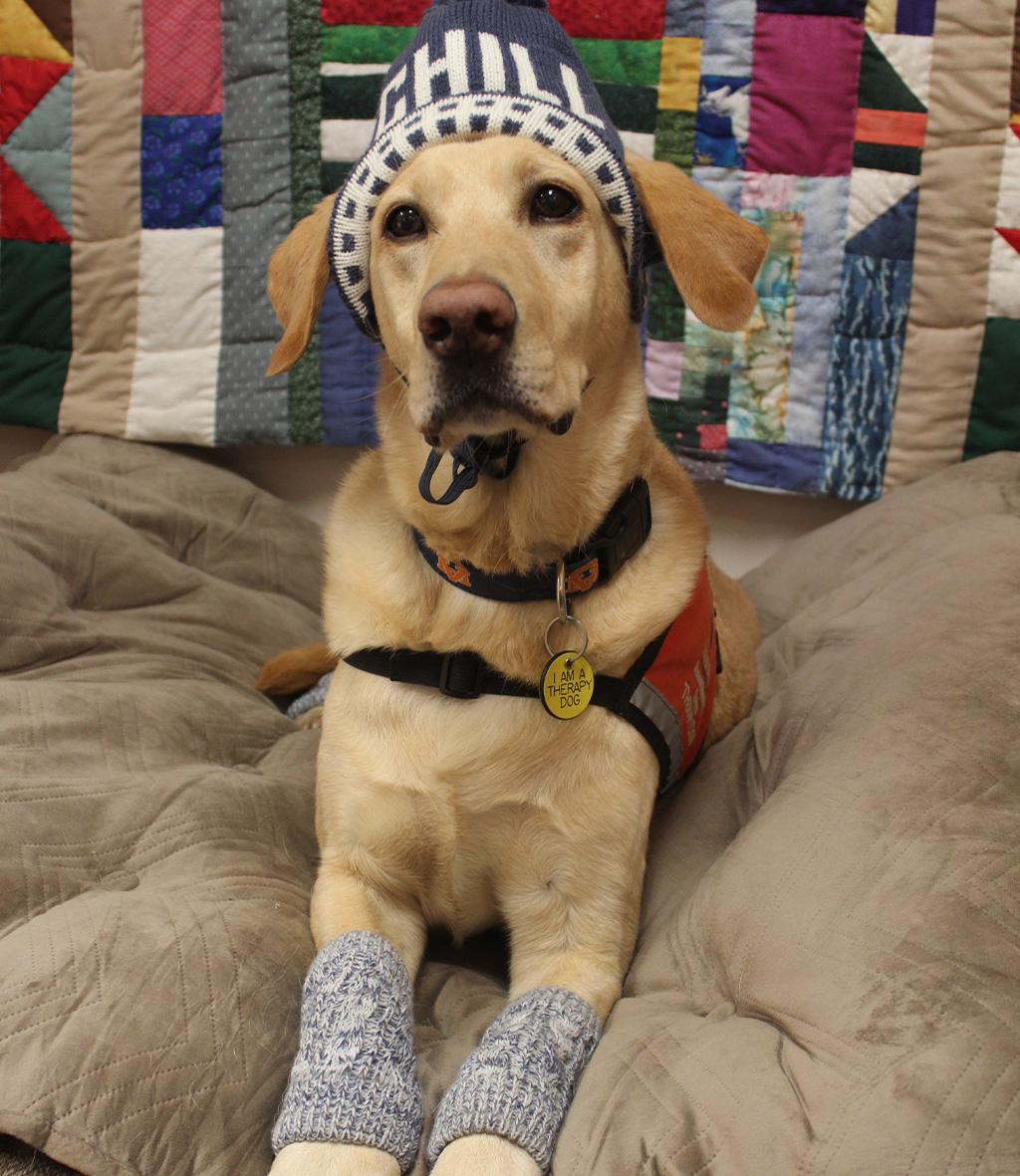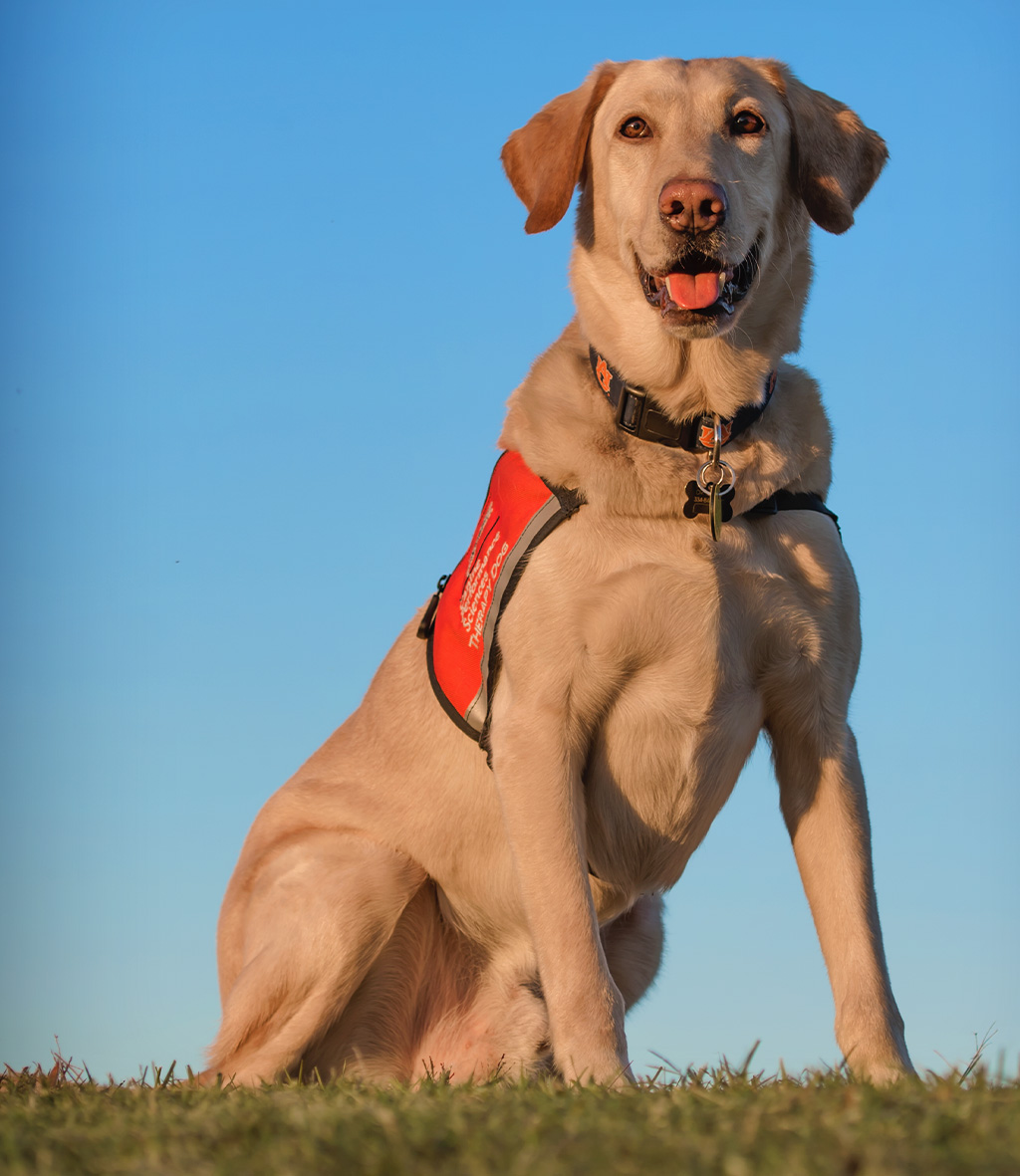Dogtor Moose (May 1, 2008 ~ January 19, 2024)
Moose, Auburn University’s beloved therapy dog, passed away recently after a hard-fought battle with osteosarcoma. Moose lived over 4 years post-diagnosis when the normal life expectancy is only 3-6 months even with treatment. He was a stoic soldier, and the College of Veterinary Medicine’s (CVM) most beloved patient. During his treatment and follow-up appointments, Moose made sure to greet as many CVM staff members and CVM clients and their pets as he could.Dogtor Moose and his buddy Liz at the Auburn University College of Veterinary Medicine (CVM) Vet School
The yellow Labrador retriever joined Student Counseling & Psychological Services (SCPS) in 2015 as the university’s first therapy dog. Before Moose began his career with SCPS, Auburn University Canine Performance Sciences trained him as a world-class detection dog. Moose went on to serve on projects with the U.S. Department of Justice and Department of Defense, and at the time, he was one of only two dogs in the world trained to sniff out live bovine virus.
Backed by the research supporting dogs’ calming influence on individuals with mental health, particularly in a clinical setting, SCPS Executive Director Dr. Doug Hankes was looking to add a therapy dog to the team. After connecting with the Canine Performance Sciences program, Dr. Hankes met Moose at the end of his 6-year career as a detection dog. Moose’s potential for a new profession had already caught the eye of Bart Rogers, who trained Moose to detect explosives when he was a puppy.
“I was confident that Moose would be able to transition into being a therapy dog because of his personality,” Rogers said. “After working with him and training him for numerous projects for the last few years, I became aware that he was very versatile and capable of nearly any task. Moose is an intense dog, but also calm, focused and always wants to please.”
After additional training and certifications, Dogtor Moose officially joined SCPS as the office’s first therapy dog. With his addition, the office was able to leverage Moose’s unique skillset for the benefit of student’s individual and group counseling appointments. As one SCPS student client said, “Moose helped me see the good in the world when I was at my lowest. He is the best boy.”
Outside of the office, Moose kept a busy schedule. He diligently worked alongside SCPS staff at numerous outreach events to promote mental well-being — and he was always the main attraction to the consternation of his handlers. He was often spotted taking one of his twice-weekly campus wellness walks, Get Mov’in with Moose, leading yoga sessions on the Campus Green (Downward Dog was his favorite pose), and participating in Camp War Eagle Parent Runs throughout the summer.
Moose was a campus celebrity. Smiling students always made time to pet him when they spotted him on campus, and many campus faculty and staff members were known to keep Milkbones on hand just in case he came by their office. His positive impact on students and the campus community led SCPS to expand its Animal Assisted Therapy program by adding Moose’s colleagues Nessie and Rooster as therapy dogs.
Moose was able to maintain a healthy work-life balance, and after hours, he was a beloved pet and family member for the Hankes family. At home, Moose lived the life every good boy should, accompanying his family on walks, receiving copious amounts of belly rubs, and chasing tennis balls to exhaustion.
For those who knew him, he was an amazing dog who touched many, many, many lives. Auburn University’s CVM and Canine Performance Sciences always referred to him as the “perfect” dog and no one who met him disagreed. Moose was a gentle dog, a scholar, and a warrior. He continued to work and take care of his people until the very end, only passing after saying goodbye to all of his caregivers at the vet school. Dogtor Moose’s legacy will live long at Auburn University.

